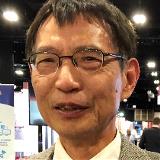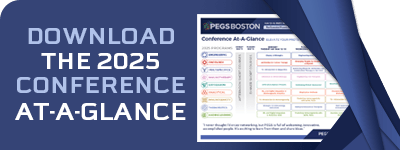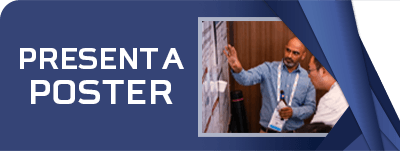Cambridge Healthtech Institute的培訓課程不僅涵蓋廣泛的學術理論和背景,還結合真實案例研究、問題分析和解決方案分享。每場培訓研討會均結合正式講座、互動討論及實踐活動,以最大化學習體驗。經驗豐富的講師將重點講授可直接應用於當前研究的內容,並為該領域的新手提供重要指導。
培訓研討會僅限線下參加
為保證一致性和專注的學習環境,參加者不得在會議議程和培訓課程之間隨意切換。
Monday, May 12, 2025 8:30 am - 6:05 pm | Tuesday, May 13, 2025 8:30 am - 12:45 pm
TS3A: Introduction to Multispecific Antibodies: History, Engineering, and Application
Topics to be Covered:
- A brief history of bispecific antibodies: 60 years of progress with critical advances and key pioneers
- Bispecific applications and powerful mechanisms-of-action
- Engineering bispecific antibodies:100 formats and counting
- Bispecific-specific considerations in preclinical development and regulatory landscape
- Developability, manufacturing, and analytical considerations
- Clinical experience, translation, and regulatory approval
- Current trends and future opportunities in regulating immune checkpoints, cell-based therapies, and personalized approaches
INSTRUCTOR BIOGRAPHIES:
 G. Jonah Rainey, PhD, Associate Vice President, Eli Lilly and Company
G. Jonah Rainey, PhD, Associate Vice President, Eli Lilly and Company
TS7A: Introduction to Immunogenicity
TOPICS TO BE COVERED INCLUDE:
Part 1: Introduction to Immunology and Immunogenicity
- What is immunogenicity?
- Immunology and major mechanisms affecting immunogenicity
- B cell development
- Clinical consequences of ADA
- Risk-based approach
- Immunogenicity in the clinic Regulations and guidance governing immunogenicity
Part 2: Predictive Immunogenicity and Role of AI/ ML
Part 3: Clinical Considerations of Immunogenicity and Regulatory Expectations
Part 4: Assay Methodology and Approaches for Describing Immunogenicity in the Clinic
- Assay methodologies
- Comparison of different methods
- Screening, confirmation
- Characterization of anti-drug-antibodies
- Cut-points Immunogenicity of complex biologics (e.g. multi-domain, biosimilars)
- PK/PD and safety and efficacy-- as a measure
- Immunogenicity in the clinic - how to report
INSTRUCTOR BIOGRAPHIES:
 Chloé Ackaert, PhD, Senior Scientist, Immunogenicity, ImmunXperts, a Q2 Solutions Company
Chloé Ackaert, PhD, Senior Scientist, Immunogenicity, ImmunXperts, a Q2 Solutions Company
 Sofie Pattijn, Founder & CTO, ImmunXperts, a Q2 Solutions Company
Sofie Pattijn, Founder & CTO, ImmunXperts, a Q2 Solutions Company
 Bonnie Rup, PhD, Biotechnology Consultant, Bonnie Rup Consulting
Bonnie Rup, PhD, Biotechnology Consultant, Bonnie Rup Consulting
TS9A: Introduction to Protein Engineering
- What is protein engineering?
- Tools and techniques
- Engineering-by-design
- Designed libraries, display technologies
- Production and manufacturing
- Improving manufacturing by protein engineering methods
- Other protein modifications
- Expression of antibodies and fragments for discovery and testing
- Emerging molecule and product formats
- Antibody-drug conjugates (ADCs)
- AI/ML applications and limitations
- Other emerging approaches
INSTRUCTOR BIOGRAPHIES:
 David Bramhill, PhD, Founder, Bramhill Biological Consulting LLC
David Bramhill, PhD, Founder, Bramhill Biological Consulting LLC
TS10A: Antibody Drug Discovery: From Target to Lead
Topics to be covered include:
Different Sources of Antibodies
- Animals: mouse, rat, rabbit, chicken, llama, etc.
- Libraries: immune, synthetic, native, fully human, etc.
- B cells: memory B cells, plasma B cells, human, and animals
Antibody-Based Drug Modalities
- IgGs, IgA, IgM, Bites, nanobody, antibody fragments, etc.
- Naked antibody
- ADC
- Bispecific/multispecific
- CAR T
Antibody Engineering
- Affinity maturation
- Humanization
- Fc-engineering: half-life, immune effector function, etc.
Target Selection and Validation
Antibodies Targeting Complex Membrane Proteins
- GPCRs
- Ion channels
- Transporters and membrane-bound enzymes
Delivery of Antibodies
Crossing the Brain-Blood Barrier (BBB)
Case Studies
AI-based Protein and Antibody Design
INSTRUCTOR BIOGRAPHIES:
 Zhiqiang An, PhD, Professor, Robert A. Welch Distinguished University Chair in Chemistry; Director, Texas Therapeutics Institute; Director, CPRIT Core for Antibody Drug Discovery; Vice President, Drug Discovery, University of Texas Health Science Center at Houston
Zhiqiang An, PhD, Professor, Robert A. Welch Distinguished University Chair in Chemistry; Director, Texas Therapeutics Institute; Director, CPRIT Core for Antibody Drug Discovery; Vice President, Drug Discovery, University of Texas Health Science Center at Houston
Tuesday, May 13, 2025 2:20 - 6:10 pm | Wednesday, May 14, 2025 10:20 am - 6:40 pm
TS9B: Introduction to Machine Learning for Biologics Design
- Basics of machine learning and where does it fit into drug discovery
- Modern homology modeling and structure prediction
- Predicting antibody affinity and specificity modulation
- Generative design in biologics: Library design and language models
- Machine learning applications of T cell and B cell immunogenicity
- Methods and application of ML for chemical, folding, solution stabilities
INSTRUCTOR BIOGRAPHIES:
 Christopher R. Corbeil, PhD, Research Officer, Human Health Therapeutics, National Research Council Canada
Christopher R. Corbeil, PhD, Research Officer, Human Health Therapeutics, National Research Council Canada
 Francis Gaudreault, PhD, Associate Research Officer, Human Health Therapeutics, National Research Council Canada
Francis Gaudreault, PhD, Associate Research Officer, Human Health Therapeutics, National Research Council Canada
TS10B: Introduction to Antibody-Drug Conjugate Design: Targets, Payloads, and Linkers
Topic areas to be covered include:
- An overview of the history of ADCs, emphasizing key developments and discoveries that shape the current therapeutic landscape
- Principles and lessons in target selection
- Antibody engineering: considerations and current trends
- Conjugation and linker chemistry, past and present payload design and selection
- Designing effective lead identification and screening strategies
- Next-generation ADC technology:
- What does the future hold?
- ADCs beyond oncology
Who should attend?
- Seasoned scientists who are moving into the ADC field
- Early career scientists in the ADC field who want a solid grasp of the “big picture” of ADC
- Executives and project managers who want a solid grasp of the challenges and opportunities of ADC technology
INSTRUCTOR BIOGRAPHIES:
 Robert J. Lutz, PhD, CSO, Iksuda Therapeutics
Robert J. Lutz, PhD, CSO, Iksuda Therapeutics
 Nathan L. Tumey, PhD, Associate Professor, Pharmaceutical Sciences, SUNY Binghamton
Nathan L. Tumey, PhD, Associate Professor, Pharmaceutical Sciences, SUNY Binghamton
TS11B: Introduction to Analytical Characterization and Method Validation for Biological Products
Topics to be covered:
- The evolving modality of therapeutic biological products
- QbD and DoE: Analytical development (ICH Q14), qualification and validation (ICH Q2(R2))
- Biologics instability: developability, forced degradation, and formulation development
- Product strength methods: protein concentration, DNA concentration and viable cell density
- Product purity/impurities methods: CE-SDS (NR/R), icIEF and HPLC
- Product potency methods: bioassays, binding ELISA and CBA
- Product identity methods: peptide mapping, sequencing, icIEF, binding ELISA, FCM
- Product safety: methods of process impurities (residual HCP by ELISA and MS) and contaminants
- Characterization of aggregates and SVP analysis
- Extended characterization: LC-MS, MAM, PTM, charge variant analysis, and HOS analysis
- CMC analytical comparability
The curriculum provides a broad overview of biologics analytical and characterization strategies. It is beneficial to individuals involved in biologics drug discovery, developability assessment, analytical development, formulation development, process development, DS/DP manufacturing, quality control, quality assurance, clinical supply, regulatory affairs, project management, or related functional areas.
INSTRUCTOR BIOGRAPHIES:
 Kevin Zen, PhD, Senior Director, IGM Biosciences
Kevin Zen, PhD, Senior Director, IGM Biosciences
Thursday, May 15, 2025 8:30 am - 5:30 pm | Friday, May 16, 2025 8:30 am - 12:30 pm
TS7C: Bioassay Development and Analysis
Key Topics:
- Introduction to Bioassays
- Guidance Documents on Bioassays
- Design & Development
- RobustnessValidation & Post Validation
- Statistical Analysis Models
- Examples / Case Studies
INSTRUCTOR BIOGRAPHIES:
 Steven Walfish, Owner, Statistical Outsourcing Services
Steven Walfish, Owner, Statistical Outsourcing Services
* 活動內容有可能不事先告知作更動及調整。
2025年 方案
顯示:

工程組
- Display of Biologics
生物製劑展示 - Engineering Antibodies
抗體工程 - Machine Learning for Protein Engineering
用於蛋白質工程的機器學習

腫瘤組
- Antibodies for Cancer Therapy
用於癌症治療的抗體 - Emerging Targets for Oncology & Beyond
腫瘤學以外的新興目標 - Driving Clinical Success in Antibody-Drug Conjugates
推動抗體藥物偶聯物 (ADC) 在臨床上的成功

多特異性組
- TS: Intro to Multispecific Antibodies
培訓研討會:多特異性抗體簡介 - Advancing Multispecific Antibodies
多特異性抗體研究進展 - Engineering Bispecific and Multifunctional Antibodies
雙特異性抗體與多功能抗體工程

免疫療法組
- Advances in Immunotherapy
免疫療法的進步 - Engineering Cell Therapies
細胞治療工程 - Next-Generation Immunotherapies
下一代免疫療法

表達組
- Difficult-to-Express Proteins
難以表達的蛋白質 - Optimizing Protein Expression
優化蛋白質表達 - Maximizing Protein Production Workflows
最大化蛋白質生產工作流程

分析法組
- ML and Digital Integration in Biotherapeutic Analytics
生物製藥分析中的機器學習和數位整合 - Biophysical Methods
生物物理性手法 - Characterization for Novel Biotherapeutics
新型生物治療藥物的表徵

免疫原性組
- TS: Intro to Immunogenicity
培訓研討會:免疫原性簡介 - Predicting Immunogenicity with AI/ML Tools
使用 AI/ML 工具預測免疫原性 - TS: Bioassay Development and Analysis
培訓研討會:生物測定開發與分析

新興治療學組
- Biologics for Immunology Indications
新興治療學組 - Radiopharmaceutical Therapies
放射性藥物治療 - Next-Generation Immunotherapies
下一代免疫療法

機器學習組
- ML and Digital Integration in Biotherapeutic Analytics
生物製藥分析中的機器學習和數位整合 - Predicting Immunogenicity with AI/ML Tools
使用 AI/ML 工具預測免疫原性 - Machine Learning for Protein Engineering
用於蛋白質工程的機器學習















